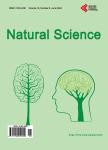PTSD, depression and anxiety among tsunami affected people in Thailand: A population-based longitudinal study
PTSD, depression and anxiety among tsunami affected people in Thailand: A population-based longitudinal study作者机构:Department of Mental Health Nonthaburi Thailand Somdet Chaopraya Institute of Psychiatry Bangkok Thailand
出 版 物:《Natural Science》 (自然科学期刊(英文))
年 卷 期:2014年第6卷第3期
页 面:114-120页
学科分类:1002[医学-临床医学] 100214[医学-肿瘤学] 10[医学]
主 题:Mental Health Prevalence Disaster
摘 要:Background: On December 26, 2004, Asian tsunami attacked the southern part of Thailand. The tsunami induced catastrophic consequences. There was no study of long-term mental health outcomes among adult survivors by natural disasters in Thailand. Objective: The purposes of the present study were to determine prevalence and longitudinal course of PTSD, depression, and anxiety among tsunami affecting Thai people, and to identify factors associated with PTSD, depression, and anxiety in this particular group. Material and Method: The present study was a population-based longitudinal study. The third mental health assessment was conducted among adult survivors older than 17 years at three years after tsunami. PTSD, depression and anxiety were assessed by using the Harvard Trauma Questionnaire (HTQ) and the Hopkins Checklist-25 (HSCL-25) respectively. Results: 550 of 693 affected people in Phang Nga province were enrolled in the follow-up survey at three years after tsunami. Prevalence of PTSD, anxiety, and depression among affected people decreased from 9.5% (66/693), 33.6% (233/693) and 25.7% (178/693), at two months after tsunami, to 2.6% (13/503), 18.7% (94/503), and 14.1% (71/503) at three years after tsunami respectively. Risk factors for mental health problems were post-traumatic life stress such as the loss of livelihood for PTSD, depression and anxiety, and pre-traumatic vulnerabilities such as sex (female), education, and previous mental illness for depression and anxiety. Conclusion: PTSD, depression and anxiety among tsunami affecting Thai people decreased over time. Pre-traumatic vulnerable factors and post-traumatic life stress were associated with PTSD, depression and anxiety. These results are acknowledgeable by two points: first, it is important to provide both mental health intervention and psychosocial intervention in rehabilitation phase for the affected people;second, duration of intervention should be at least three years after severely impacted disas



